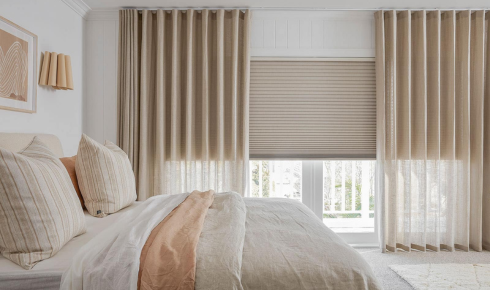
In a world that often encourages more, bigger, and faster, minimalism offers a refreshing and transformative perspective. Minimalism is not just about decluttering your physical possessions; it’s a way of simplifying your life, freeing yourself from the excess, and finding deeper meaning and satisfaction. In this article, we’ll explore the art of minimalism, its principles, and how to apply them to declutter your life, both physically and mentally.
What is Minimalism?
Minimalism is a lifestyle and philosophy centered on the intentional reduction of excess, in both material possessions and mental clutter. It’s about focusing on what truly matters and eliminating the distractions and unnecessary baggage that can weigh us down. Minimalism encourages individuals to:
Simplify: Remove the superfluous and concentrate on the essentials.
Prioritize: Identify what truly matters and allocate your time and resources accordingly.
Mindfulness: Be present in the moment and appreciate the simple joys of life.
Sustainability: Promote sustainable and responsible consumption.
Freedom: Free yourself from the endless pursuit of more, allowing space for contentment and inner peace.
The Principles of Minimalism
Minimalism is guided by a set of core principles, each of which contributes to the overarching goal of simplifying and decluttering life:
Focus on Experiences, Not Possessions: Minimalists prioritize experiences, memories, and relationships over material possessions. They understand that happiness often comes from moments shared with loved ones, not from accumulating stuff.
Declutter Your Space: Minimalists keep their physical environment uncluttered by removing unnecessary belongings. A minimalist living space is clean, organized, and devoid of excessive items that do not serve a purpose.
Mindful Consumption: Minimalism encourages conscious and mindful consumption. Before making a purchase, minimalists ask themselves if the item is truly needed and if it will add value to their life.
Quality Over Quantity: Minimalists prefer quality over quantity. They invest in high-quality items that are built to last, reducing the need for constant replacement.
Digital Minimalism: Minimalism extends to the digital realm. It encourages individuals to declutter their digital life by unsubscribing from excessive email lists, limiting screen time, and organizing digital files and data.
Simplify Time Commitments: Minimalists are selective with their time commitments. They prioritize activities that align with their values and passions and say no to commitments that lead to unnecessary busyness and stress.
How to Apply Minimalism in Your Life
Declutter Your Physical Space: Start with your physical surroundings. Go through your belongings and identify items you no longer use or need. Donate, sell, or recycle these items. As you declutter, keep in mind the principle that possessions should serve a purpose or bring you joy.
Downsize: Consider downsizing your living space if it’s larger than what you need. A smaller home typically requires fewer possessions and less maintenance, which can lead to a simpler life.
Organize: Keep the items you use regularly organized. Invest in storage solutions that make it easy to maintain a clutter-free environment.
Digitize: Reduce paper clutter by digitizing important documents. Organize your digital files and back up essential data to prevent unnecessary stress and clutter.
Mindful Consumption: Before making a purchase, ask yourself if the item is truly necessary. Consider its long-term value and how it aligns with your values and lifestyle. Avoid impulse buying.
Limit Media Consumption: Reduce screen time and unplug from digital distractions. Set specific times for checking emails and social media to prevent constant connectivity.
Prioritize Experiences: Instead of collecting more possessions, invest in experiences. Spend quality time with loved ones, travel, explore new hobbies, and create lasting memories.
Evaluate Your Commitments: Assess your commitments and obligations. Simplify your schedule by removing activities that no longer align with your goals and values. Say no when necessary to avoid overextending yourself.
Practice Gratitude: Cultivate gratitude by regularly reflecting on the things you’re thankful for. This practice can shift your focus from what you lack to what you have.
Mindful Consumption of Information: Apply minimalism to your information consumption. Limit your exposure to negative news and focus on high-quality, informative content.
The Benefits of Minimalism
Minimalism offers a multitude of benefits, including:
Reduced Stress: A clutter-free, simplified environment leads to reduced stress and anxiety. You’ll spend less time searching for things and have a clearer mind.
Improved Financial Health: Minimalism encourages mindful consumption, which can lead to better financial health. You’ll spend money on items that truly add value to your life and avoid impulsive purchases.
Enhanced Focus: Removing distractions and simplifying your environment allows for improved focus and concentration.
Increased Freedom: Minimalism provides the freedom to pursue what truly matters to you, whether it’s traveling, starting a new hobby, or spending more time with family.
Inner Peace: By decluttering your life, you create space for inner peace and contentment. You’ll find joy in simplicity and mindfulness.
Positive Impact on the Environment: Mindful consumption and reduced waste contribute to a more sustainable lifestyle and a reduced environmental footprint.
Better Relationships: Minimalism encourages quality time with loved ones, strengthening relationships and fostering deeper connections.
In Conclusion
Minimalism is a powerful philosophy that encourages you to declutter your life, both physically and mentally, by simplifying and focusing on what truly matters. It’s not about deprivation but about making intentional choices that enhance your well-being, promote balance, and free you from the constant pursuit of more. By adopting minimalism, you can lead a simpler, more meaningful life that is in alignment with your values and priorities.
Embrace the art of minimalism, and you’ll discover the immense joy that can be found in the simplicity of life, where less truly becomes more.








